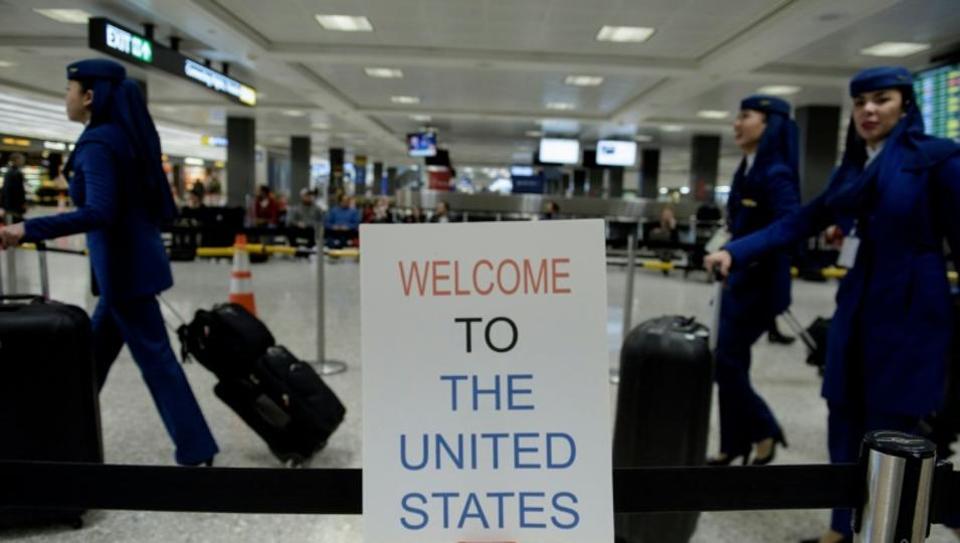A federal judge in the US state of Hawaii ruled on Thursday in favor of amending the list of family relationship with US citizens that visa applicants can use to get into the country.
The development was the latest blow to the travel ban imposed by President Donald Trump against the six Muslim countries of Syria, Sudan, Somalia, Libya, Iran and Yemen.
The ruling, by US District Judge Derrick Watson, saw the list of family relationships that was included in the recently released visa restrictions criteria expanded to include grandparents, grandchildren, brothers-in-law, sisters-in-law, aunts, uncles, nieces, nephews and cousins of people in the United States.
The Supreme Court last month said the ban could take effect, but that anyone from the six countries with a “bona fide relationship” to a US person or entity could not be barred.
The Trump administration then interpreted that opinion to allow spouses, parents, children, fiances and siblings into the country, but barred grandparents and other family members, in a measure Trump called necessary to prevent attacks.
The current rules aren’t so much an outright ban as a tightening of already-tough visa policies affecting citizens from those six countries.
People from those countries who already have visas will be allowed into the country. Only narrow categories of people, including those with relatives named in Thursday’s ruling, will be considered for new visas.
Watson harshly criticized the government’s definition of close family relations as “the antithesis of common sense” in a ruling that changes the way the ban can now be implemented.
“Common sense, for instance, dictates that close family members be defined to include grandparents. Indeed, grandparents are the epitome of close family members,” he wrote.
Watson also ruled that the government may not exclude refugees who have formal assurance and promise of placement services from a resettlement agency in the US.
Trump’s order is a pretext for illegal discrimination, Hawaii Attorney General Douglas Chin said in a statement.
“Family members have been separated and real people have suffered enough,” Chin said.
Melanie Nezer, vice president of global refugee advocacy group HIAS, said the ruling should mean that refugees can continue to be resettled in the United States, beyond a cap of 50,000 set by the executive order. That limit was reached this week.
“We are thrilled that thousands of people will be reunited with their family members,” said Becca Heller, director of the International Refugee Assistance Project.
More than 24,000 additional refugees should be allowed to travel to the US under Watson’s order, she estimated.
Watson did not grant everything the state of Hawaii sought, however. He rejected a request to categorically exempt all Iraqis refugee applicants who believe they are at risk due to their work for the US government since March, 2003, as interpreters and translators, for instance.
Watson also refused a blanket exemption for those eligible to apply to a refugee program aimed at protecting certain children at risk in El Salvador, Honduras and Guatemala.
Trump proposed a blanket ban on Muslims during his campaign, but limited it to a handful of countries when he issued his initial travel ban in January, promoting it as a necessary tool for national security and fighting terrorism.
It set off massive protests at airports around the country and immediately sparked a sprawling, ongoing legal fight.
Courts blocked that first ban as well as a second the Trump administration had retooled, until the Supreme Court partially reinstated it at the end of June.
It’s unclear how significantly the new rules have affected or will affect travel. In most of the countries singled out, few people have the means for leisure travel. Those that do already face intensive screenings before being issued visas.
